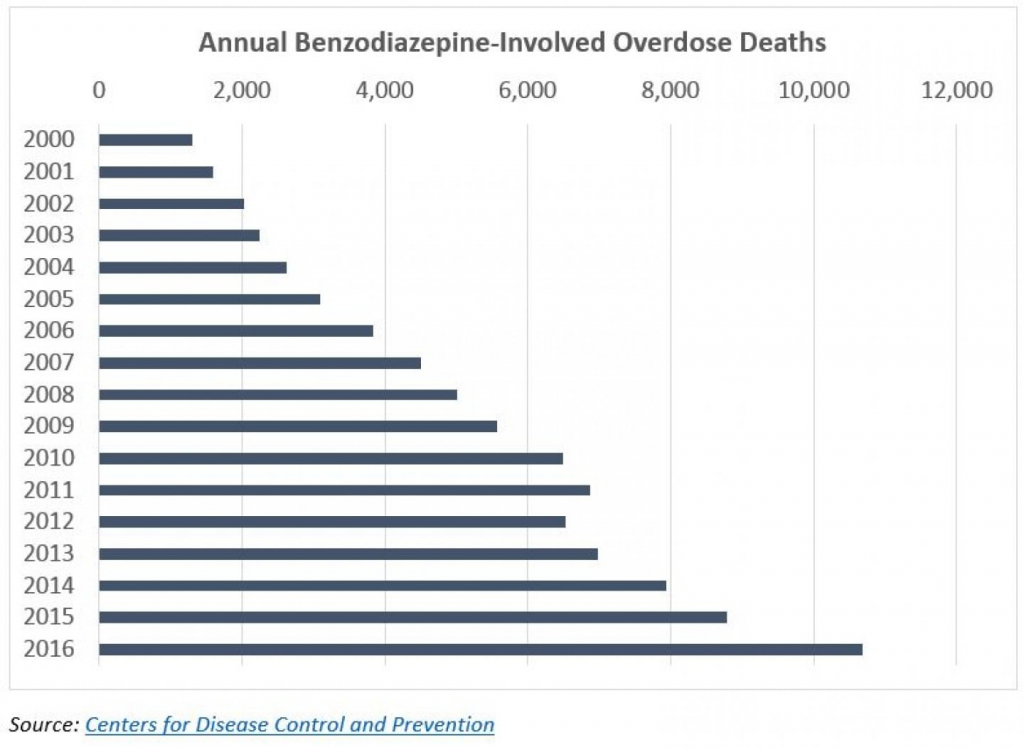 Despite overwhelming support from U.S. veterans, the U.S. government is not willing to support veterans with safer Cannabis based medical treatments despite increased cases of opioid addiction and suicide amongst U.S. troops and veterans. Medical cannabis helps millions of Americans treat a myriad of ailments – from cancer to fibromyalgia, as well as chronic pain and anxiety. For military veterans, the rigors, daily grind, physical excursion and long hours from years dedicated service take a toll on the human body, both physically and emotionally. There has been a lot of discussion and debate regarding medical cannabis among military veterans. In this article, we’ll discuss the VA’s stance on medical cannabis, its continued stigma, and whether it’s an effective treatment for PTSD. VA Medical Coverage for Cannabis The United States Department of Veterans Affairs, abbreviated as the VA, provides eligible veterans with healthcare coverage. At this time, cannabis medicine is not approved for former military personnel under their healthcare coverage provided by the VA. This is despite the fact that the vast majority of veterans appear to currently be in favor of medical cannabis. A poll conducted on behalf of the American Legion shows that 82 percent of respondents are in favor of legal medical cannabis, and 92 percent support further research on it, according to an article from Military Connection. A quick Google search will give you an abundance of scientific evidence that medicinal marijuana can be an effective treatment for pain management and PTSD – two of the main ailments suffered by veterans. Marijuana is an attractive alternative to patients who suffer from chronic pain, and millions of vets are no different. The opioid crisis is a hot button topic this election year, as it has been for some time now. According to the CDC, there were 47,600 deaths in the U.S. from opioids in 2017. There has never been a recorded death directly attributed to consuming cannabis. If any American deserves a replacement for potentially harmful pharmaceutical opioids like hydrocodone and tramadol, it’s servicewomen and men. Due to the current classification of cannabis as a schedule 1 drug, doctors cannot prescribe it to veterans. This classification also halts the much-needed research that must be done in order to expand access to the plant medicine. Each individual veteran is, of course, free to apply for medical herb, provided it’s legal in their home state. At the end of the Obama presidency, the DEA announced they were taking steps to approve access to medical marijuana research. This was in 2016, with a similar announcement being made in 2019. At the time of this writing, there hasn’t been any action taken by federal agencies like the DEA or FDA to make progress on these approved research licenses. The Stigma of Cannabis Treatment for PTSD PTSD, or post-traumatic stress disorder, is a condition that is very common, impacting 3 million Americans for their own specific reasons. As much as 20 percent of Iraq war veterans currently suffer from PTSD. About 12 percent of Gulf War veterans suffer from PTSD, according to statistics from U.S. News. PTSD causes symptoms that can be hard for many veterans to cope with. These symptoms include emotional numbing, detachment, depersonalization, feeling like one is in a haze, and dissociative amnesia. One of the most common prescriptions for anxiety, depression and other mental health conditions that are associated with PTSD is a benzodiazepine called alprazolam, better known by its brand name Xanax. When combined with opioids like codeine, hydrocodone, which are also commonly prescribed to military vets, these rugs can cause serious side effects or even death. There were over 10,000 recorded deaths in the U.S. from benzodiazepines in 2016.drugs can cause serious side effects or even death. There were over 10,000 recorded deaths in the U.S. from benzodiazepines in 2016. For anyone, being cut off from drugs like Xanax is very dangerous and could even cause suicidal ideations in those who suffer from PTSD. As previously mentioned, a great alternative could be medical cannabis. There is an unfortunate stigma attached to medicinal marijuana treatments for PTSD and chronic pain, due to conflicting reports from mainstream news outlets and some anti-drug organizations. Some studies even claim that weed is abused by those with PTSD and chronic pain. There are other news stories that have reported cannabis is a promising and potentially effective treatment for PTSD. This scientific study concluded that the herb is associated with reductions in PTSD symptoms in patients accepted into New Mexico’s medical program. Most studies have been done on veterans consuming weed has been in the context of a drug abusive disorder, rather than it being a real treatment. The difficulty of researching the drug for PTSD was on display for ten years, as Dr. Sue Sisley led a team of researchers who were determined to finish the first clinical trial of cannabis consumption in veterans suffering from PTSD. Dr. Sisley was fired from her position at the University of Arizona because of the study, following complaints from a Senator. The stigma continues, with no clear end in sight – as a teacher in Florida could potentially lose his job due to him treating his PTSD with medicinal marijuana. The teacher’s name is Michael Hickman, a former Marine who served in Desert Storm. Hickman is fighting for his job, even though he was promoted to a dean. Hickman’s case certainly wasn’t the first instance of an employee being fired for consuming medical cannabis to treat PTSD, and it won’t be the last, either. It’s not difficult to find a plethora of news stories covering various cases like it. The Future of Medical Cannabis for Veterans The continued difficulty of much-needed cannabis research in the U.S. is no secret to anyone. Even Rolling Stone published a feature article on this. The reason why it’s so difficult to study it in the U.S. is that doing so requires approval from the DEA, the FDA, and the National Institute on Drug Abuse. Representatives from these agencies have reportedly drug their feet, with little progress being made. Many cannabis advocates, most notably those from NORML, point out this hypocrisy – as most federal lawmakers would lay claim that they support the military and its veterans. The few studies that are actually approved are only allowed to receive weed that is grown at The University Ole Miss, which reportedly supplies researchers will low-grade cannabis. As we move forward in 2020, hopefully, there will be progress made with more clinical trials and research, as cannabis prohibition and the lack of access to it is clearly damaging veterans suffering from PTSD. Legalization advocates would do well to support researchers and scientists like Dr. Sue Sisley, who subject themselves to the gauntlet that is gaining federal approval for cannabis research. About the author: Jason Sander is a versatile writer and marketer with fifteen years of experience serving clients. He couples this expertise with a passion for cannabis businesses and the science of medical marijuana.
0 Comments
Leave a Reply. |
HISTORY
April 2024
Categories |
© Walk 4 Change. All rights reserved.


 RSS Feed
RSS Feed